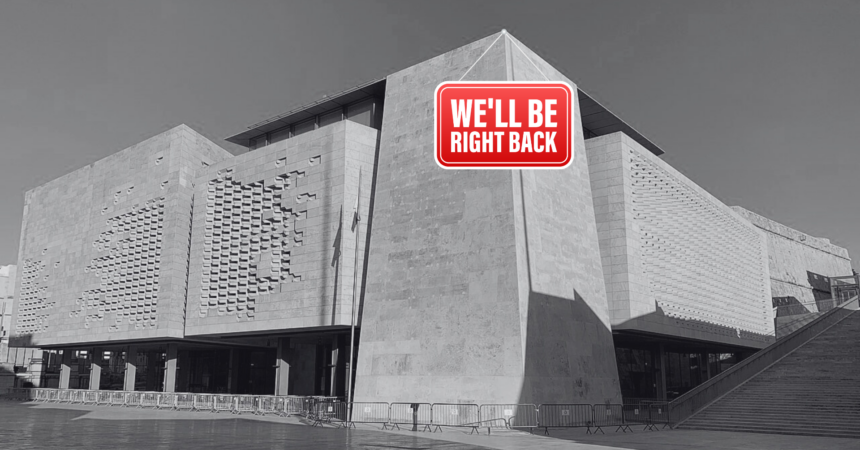When Culture Minister Owen Bonnici issued Legal Notice 201/23 that hastily established the new Centre of the Maltese Language, he did much more than fudge the process.
His actions were a stark reminder of two pervasive problems at the root of this administration’s operations: a propensity to try and pass laws surreptitiously, hoping they’ll go unnoticed, and doing so while parliament is in recess.
All about the timing
The rush by Minister Bonnici to draft the new legislation establishing the Centre of the Maltese Language, of which former head of news at TVM, Norma Saliba, would be made head, resulted in the document being riddled with the most basic errors.
Not only was the notice in breach of the Maltese Language Act, but the English version of the legal notice did not tally with the Maltese version.
Furthermore, the commencement notice was issued three days after the legal notice. It was backdated to 11 August to justify Saliba’s precipitous appointment.
Important legislative changes, through subsidiary legislation or Bills, have been introduced during parliamentary recess before.
One such example was when the government published details of a new bill just two days after Christmas, allowing it to appoint a Standards Commissioner without the need for a two-thirds majority in parliament. The Bill was published in the government gazette on 27 December, but it was 3 January when the media picked it up.
One of the most striking examples of this modus operandi was when, on 10 September 2013, while Malta’s parliament was in recess, disgraced former Prime Minister Joseph Muscat quietly introduced a scheme for individuals to buy Maltese passports.
The details were published in Legal Notice 269, establishing a new state agency, Identity Malta, incorporating all departments responsible for passports, identity cards, work permits and residence permits. Three days later, his government signed an agreement with Henley and Partners Holdings to operate a passport sales programme.
Legal experts who spoke to The Shift explained that legislating by way of subsidiary legislation and the issuing of Legal Notices is common in most parliamentary systems.
Provided that someone, usually a government minister, has the proper authority given to him or her by parliament, the procedure saves parliamentary time and enables urgent legislation to be put into effect. All that is required is the minister’s signature, the prime minister’s approval and publication in the Government Gazette. The Legal Notice is then tabled in the House of Representatives.
According to Article 11 of the Interpretation Act, once a Legal Notice is published, it should be tabled in parliament as soon as possible, after which there are 60 days for the legislation to be annulled or amended. Therefore, if an opposition member wishes to challenge or amend Bonnici’s Legal Notice, they must wait until parliament resumes its plenary sessions, scheduled for 3 October.
That leaves plenty of time for the issue to be quietly side-lined by the more pressing matters.
Sluggish summer recesses
Considering all the issues that result from Malta having a part-time parliament, if we add the excessively lengthy summer recess, it’s no wonder so few things are done, and when they are, they’re poorly done.
A cursory look at the summer recess dates between 2008 – 2023 shows just how long the parliament summer recess in Malta is compared to other European parliaments.
According to parliament’s publicly available data, this year, the House adjourned for its summer recess on 12 July and will reconvene on Monday, 2 October 2023, a recess of 82 days (including weekends). On the other hand, Germany’s parliament (Bundestag) closed for (31 days) and the UK’s House of Commons for 46 days.
Malta’s most extended summer recess occurred in 2018 and 2022 (89 days), while the shortest was in 2020, with a summer recess of 68 days. By comparison, in 2022, Italy’s Lower House (Camera dei Deputati) was closed for 34 days, and Italy’s Senate (Senato) for 26 Days.
This may partially explain why, in its 2022 report, the Council of Europe’s anti-corruption watchdog, GRECO, found that Malta has fully implemented just 9% of measures recommended to improve integrity in top government positions and law enforcement and preventative measures against corruption.
Neither can anyone feign surprise that Malta has made little to no progress in adopting the rule of law recommendations made by the European Commission since last year, according to the Commission’s 2023 Rule of Law Report.
It’s also why, two years after receiving the final report of the public inquiry into the assassination of Daphne Caruana Galizia, the government has still not addressed the systemic failures that enabled her assassination. That, and political will.
The only recommendation the government implemented was setting up a Committee of Experts to advise it on reforms, which submitted its final report to the prime minister after parliament rose for summer recess and has yet to be tabled in the House.













While “legislating by way of subsidiary legislation” may well be “common in most parliamentary systems”, most EU member states nevertheless manage to adhere to the rule of law and blatant attempts to ‘game the system’ tend to bring appropriate consequences, thanks to vigilant media coverage and the general lack of outmoded political duopolies.
Il-Ministru Owen Bonnici ħareġ ta’ mazetta u kellu jirtira. Issa Norma Saliba qegħda ” on loan”.
Malta fares better when parliament is closed!!